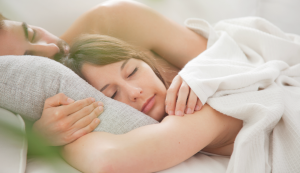10 Tips for a Better Night’s Sleep – Part 2
- 31
- Jul
- 2014
- Posted Byadmin
- InDepression, Happiness, Individual Concerns, Positive Suggestions
- No Comments.
 Getting a good night’s sleep can affect the way you feel throughout the day, and there are many things you may be doing that are affecting the restfulness of your sleep that you don’t even realize you are doing. In part 2 of this article, we will continue to go over the things that might be interfering with your sleep.
Getting a good night’s sleep can affect the way you feel throughout the day, and there are many things you may be doing that are affecting the restfulness of your sleep that you don’t even realize you are doing. In part 2 of this article, we will continue to go over the things that might be interfering with your sleep.
1. Keeping your bedroom too warm
Not only does a warm bedroom promote nightmares, it also prevents your body’s natural cooling that it does while you sleep. Without this cool-down, your body’s natural melatonin and growth hormone release are inhibited. This means that you won’t burn any fat while you sleep or benefit from your body’s healing process. How to fix it: Sleep in an environment below 70 degrees (Fahrenheit).
2. Sleeping in tight clothes
PJs can be extremely comfy, but if they are too tight, it raises your body temperature which prevents the release of melatonin and growth hormone, again, interfering with your sleep. How to fix it: sleep without clothing and avoid heavy blankets. If you need to wear something to bed, make sure its light and loose.
3. Not getting natural light in the morning
If when you wake up you do not open the blinds or go outside, this could be harming your sleep schedule! Melatonin is supposed to be lowest in the morning, so if you stay in the dark, your body will not recognize that it’s time to get up and get moving. Without natural light as soon as you wake up, you may feel overly tired during the day and get cravings. How to fix it: open your blinds or go outside as soon as you wake up.
4. Not getting the right amount of sleep
Most people need between 7 and 8 hours of sleep a night. However, some people may need more or less depending on their body. When you aren’t getting enough sleep, you will feel extremely tired and also have cravings, potentially causing weight gain. How to fix it: Get at least 7 ½ to 9 hours of sleep on a regular basis.
5. Going to bed too late
Even if you consider yourself a “night owl,” it may be affecting your sleep. People that consider themselves evening people have reported more sleep apnea and insomnia than people that consider themselves “early birds.” How to fix it: try to go to sleep between 10 and 11 p.m.
Receive My Newsletter
Categories
- Abuse
- Anxiety & Panic
- Comics
- Dating
- Depression
- Eating Disorders
- Emotional Issues
- Family Issues
- Happiness
- Individual Concerns
- Marriage / Relationships
- Mental Illness
- Parenting
- Personality
- Positive Suggestions
- Stress
- Suicide
- Teenagers


